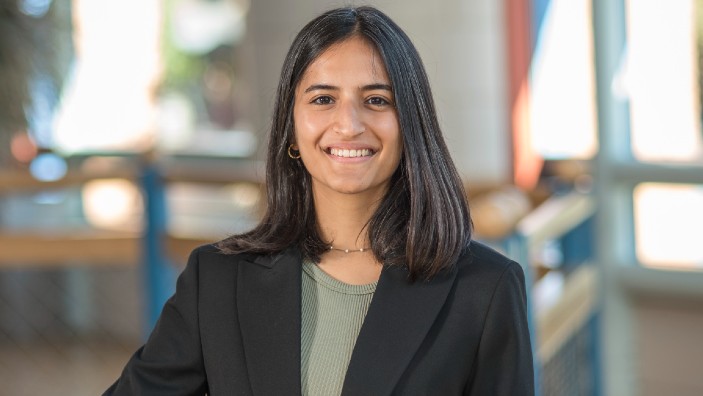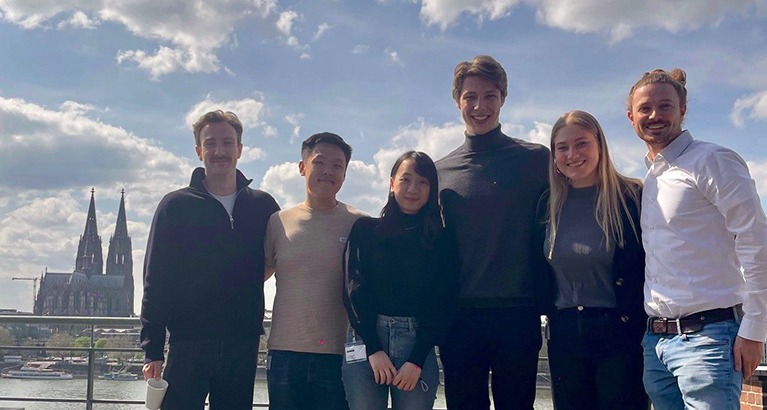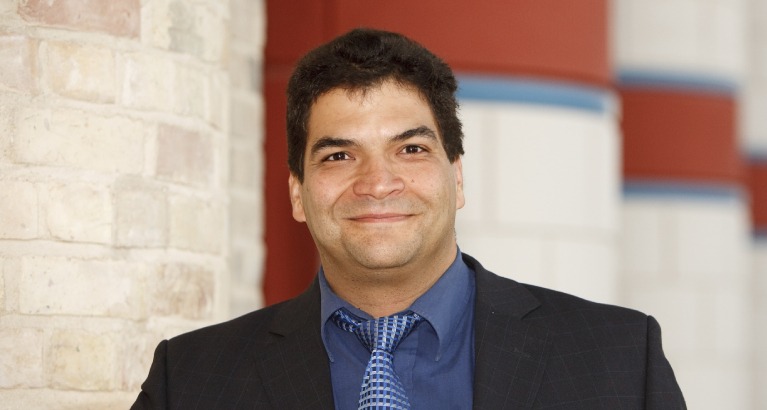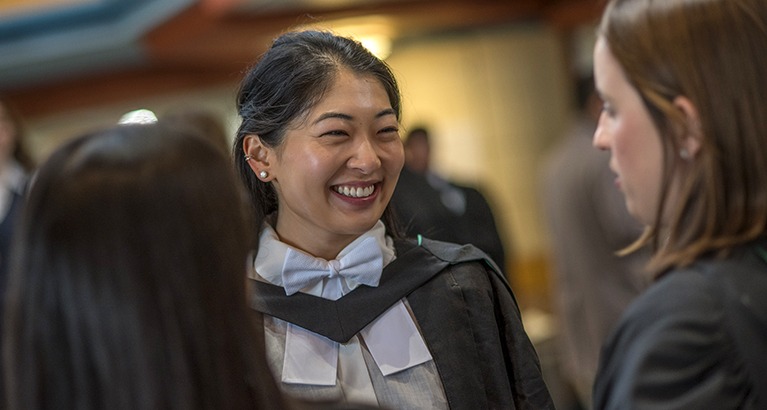“I grew up in Jabalpur, India and was the first person in my family to move abroad for work,” says Krathika Parchani, a former MBA student at Cambridge Judge. “I grew up in a society where women’s options are often restricted but was fortunate enough to have plenty of female role models, including my mother. A lot of the work I have done over the years has been about supporting gender equality in various capacities, so applying for the Forté Foundation scholarship seemed like a good fit.”
Parchani was awarded the scholarship for the 2022-23 MBA programme, along with 5 others in the cohort, and says her motivation for applying was to continue supporting equality in business while being able to study debt-free as the scholarship covers half the MBA tuition fees.
Women on the MBA

Parchani says she was immediately impressed by the diversity of the MBA cohort and the support network that came with it. “The representation of women on the MBA was really great,” she says. “It was the most incredible cohort of women I could have asked for, and we all supported and encouraged each other at different stages of the journey. It was also nice to see so many women leading Special Interest Groups (SIGs).”
As well as facilitating a strong community of women in the MBA – including a networking dinner attended by around 50 MBAs before the programme started – Parchani says the Forté scholarship was a great way to get to know other like-minded people committed to furthering women’s equality. “For instance, when I was working through my job applications, I received extensive feedback from other Forté scholars on my CV and cover letters,” she says. “The wider Forté Fellows’ network has been really great too, and I’ve been able to reach out and connect with previous Fellows for advice.”
When I was working through my job applications, I received extensive feedback from other Forté scholars on my CV and cover letters.
Expanding networks
It wasn’t just the Forté scholarship that gave Parchani a chance to grow her network, though. “I met so many people from all across the world and from many different industries on the programme,” she says. “I’d already lived in Cambridge for 4 years before joining the MBA, working for Simprints – a small, non-profit tech startup that provides digital identification for the last mile delivery of goods and services to governments and NGOs – but my network was limited primarily to those in the non-profit global health and tech space.
“The MBA gave me a chance to really expand my network, both during and after the programme,” she says. “I’m now living in Geneva, where I’m a member of the Oxbridge Club, which regularly hosts events, including monthly drinks and various dinners. This has been a great way to navigate living in a new city.”
She says the MBA programme also provided the skills and confidence to transition to a larger, international organisation. “It really helped me to navigate different cultures and working styles, which has been incredibly useful at Gavi, where my peers and partners come from all over the world,” she says.
“It also helped me strengthen my time management skills and encouraged me to explore new areas and opportunities. I did an elective in Project Management, and I’ve been able to use the tools from that in my current job,” she says. “I also chose an elective in Energy, Emissions Markets and Policies – this was an area I knew nothing about and wanted to explore. It gave me a great insight into how energy markets work and was a reminder that if I ever want to switch areas and try out something new, I have those resources and tools at my disposal.”
The MBA gave me a chance to really expand my network, both during and after the programme.
Life in Cambridge
But for Parchani, studying at Cambridge was about more than just the MBA itself. “I think my favourite thing about being at Cambridge Judge was the fact it was a part of a larger university,” she says. “It was the fact you would have serendipitous encounters with people all around Cambridge because it’s such a small city; it’s an environment that facilitates meeting people.”
She says college membership was a fundamental part of the experience. “I was at Jesus College, and I loved it. I briefly co-led the College’s Entrepreneurship Society, which involved bringing in speakers, organising workshops and sharing learnings from the MBA programme with students who weren’t studying business but were interested in entrepreneurship,” she says.
Outside of college, Parchani also worked as an Engagement Manager for the Cambridge Consulting Network, leading a team of four to deliver on a project for a venture studio. “The client wanted to do a market-sizing project to figure out who their target customers should be,” she says. “It was a great learning opportunity and gave me first-hand exposure of consulting, as well as experience managing a team.”
I think my favourite thing about being at Cambridge Judge was the fact it was a part of a larger university. It was the fact you would have serendipitous encounters with people all around Cambridge because it’s such a small city; it’s an environment that facilitates meeting people.
Working in the impact sector
Following the MBA, Parchani joined Gavi in 2023. “As Private Sector Partnerships Manager, my role involves working with private sector partners to ensure Gavi’s impact is amplified by bringing in investments to further the Alliance’s mission,” she says. “Each day offers a new growth opportunity, and being part of the wider impact sector is incredibly rewarding.”
She believes the sector is ripe for opportunity for MBA students interested in making a difference – and it’s not just the obvious roles. “Pretty much every company is now looking to align themselves with the UN Sustainable Development Goals,” she says. “That means there are more and more opportunities to take up roles in impact within organisations, and it’s not just the roles you might think of in the traditional sense – you don’t have to be the impact manager or sustainability head to make a difference, so it’s worth looking at it from a wider lens,” she says.
“Impact organisations are under increasing pressure to be cost-efficient – not least because a lot of them run on donor funding – so I think that’s a great way for someone with a business degree to add value in an innovative way. There are also many other avenues to explore – including innovative and development finance, strategy, as well as project management.
“I think working in the impact sector is a very viable career step, and you can always pivot if it’s not for you, because you’ll gain so many valuable skills – not least figuring out how to work with people from across different cultures, navigating complex organisations, and getting to grips with key global trends,” she says.
“It’s really rewarding to be able to walk away at the end of the day feeling good about the work you’ve done – and I’m really grateful to the MBA for having helped me navigate this career move.”
Krathika’s top tips for applying for the Forté Foundation scholarship
- Think about what you hope to get out of the scholarship, but also why you’d be a good candidate and what you can bring to the table. Everyone thinks about how the scholarship will benefit them, but I think very few people think about it from the other way round, so this can really help you stand out.
- Know why you want to do the MBA, and why you want to do it here; Cambridge Judge isn’t just a standalone business school – as part of the wider University of Cambridge, there’s thousands of years of tradition behind it, and that makes it really unique.
- Talk to existing and previous Forté scholars – everyone’s experience is unique, so the more you know, the better your application will be.





